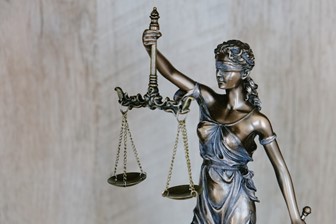
Ethical standards are a necessary component of a functional society, and they become even more important in the legal profession.
This can be broken down into three main categories. Ethical considerations must be made for the client-attorney relationship, while providing services to non-client individuals, and for the purpose of upholding the integrity of the entire legal profession.
Below, Tricia Bigelow Attorney explores the intricacies of the ethical mandates that characterize each category.
Ethics In the Legal Profession
Society relies on the upholding of justice and faith in the legal system. The ethics of the legal profession is therefore extremely important no matter what area of law is being practiced. Every lawyer must follow a strict code of conduct in order to maintain their professional standing and protect the rights of their clients.
Attorney-Client Relationship
The relationship between a lawyer and their client is the foundation of all legal proceedings and must be protected by strict ethical considerations. A client must be able to trust their lawyer to protect their rights, proceed with their case in the most fitting and timely manner, and protect their privacy. The professional standards that uphold this area of ethical practice are as follows:
- A lawyer must not disclose a client’s information to anybody
- A lawyer must not share details about their client with anybody
- A lawyer must never proceed with a case when a conflict of interest is present; the client has a right to unbiased loyalty
- A lawyer must not mislead their client about the expected outcome of their case
- A client must be the sole determinant of the goals of the case; the lawyer should only offer expertise and guidance
Non-Client Relationships
While the relationship between a client and attorney should always be a first priority, lawyers have an ethical obligation to non-client individuals as well. A code of conduct in this area will include:
- A lawyer must always tell the truth when speaking to a non-client individual
- If an individual has hired a lawyer, no other lawyer is permitted to contact that individual directly
- If an individual has not hired a lawyer, all lawyers communicating with them must indicate that they are representing a client and are not an uninvolved third party
- If an individual has a conflict of interest with a lawyer’s client, the lawyer cannot provide legal advice to that individual
- A lawyer must never act in a way that only embarrasses, burdens, or violate the rights of a third party

Profession Integrity
Lawyers will be held to higher standards than professionals in most other fields, as they are directly responsible for protecting and upholding the law and individual rights. A lawyer can be penalized or banned from practicing law if they:
- Commit a felony or misdemeanor offense
- Provide false information about an electoral candidate
- Lying directly or through omission of the truth
In addition to this, it is every lawyer’s ethical obligation to report any inappropriate conduct of other legal professionals.
Wrapping Up
Ethics are an integral component of professional conduct standards in the legal field. When ethical guidelines are followed, a law firm can uphold the law, ensure justice is served, and improve the reputation of the profession.


